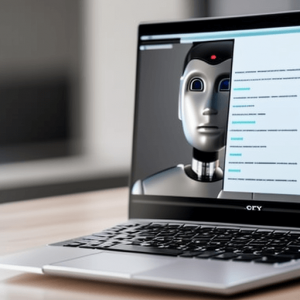ChatGPT, the OpenAI language model integrated in Chatbot Pro, has the potential to revolutionize the software development process by providing support and solutions to software engineers. From generating code snippets to answering technical questions, ChatGPT offers a wide range of applications for programmers. In this article, we will explore 25 different ways in which ChatGPT can assist and improve the workflow of software engineers.
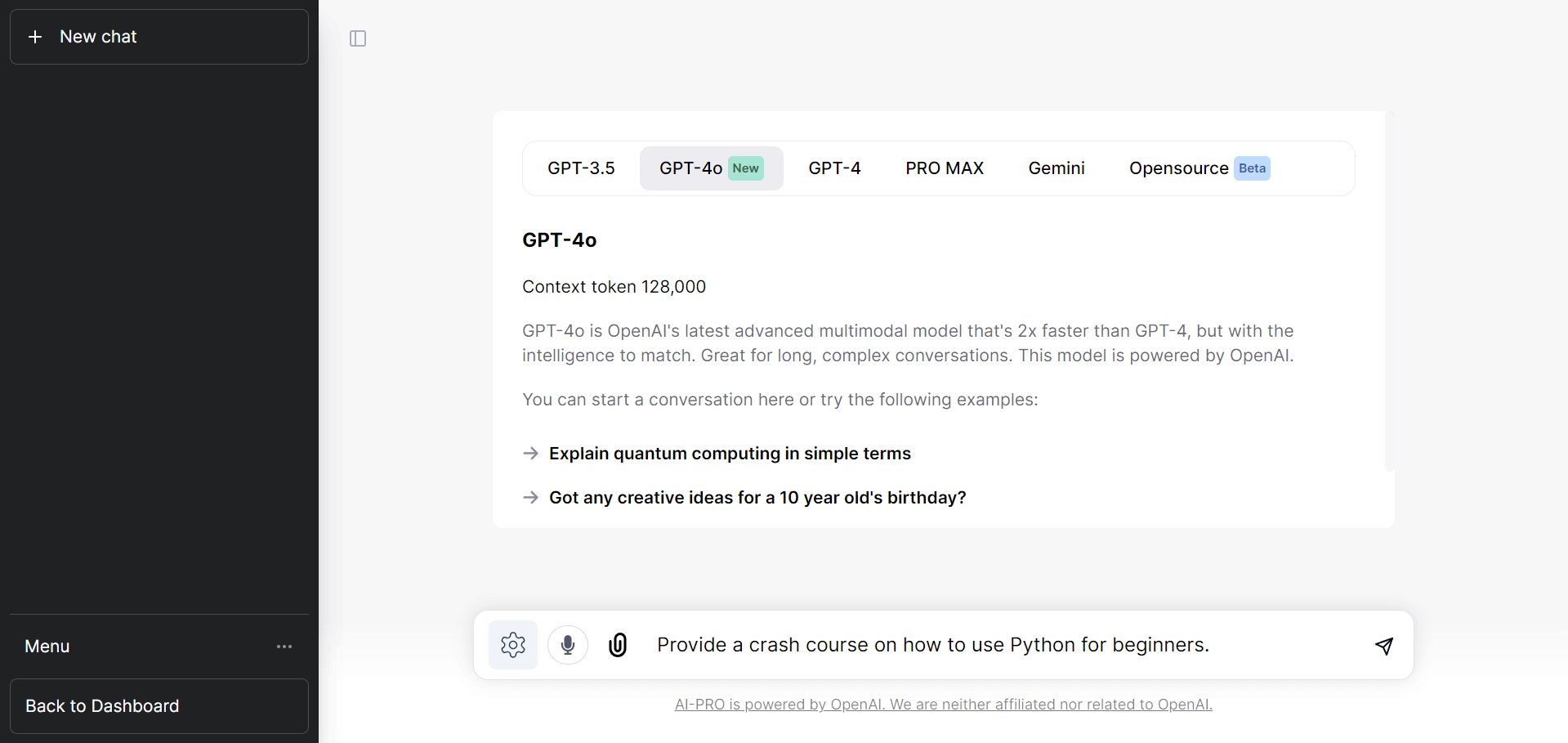
1. Automating Repetitive Coding Tasks
Task automation software reduces manual work which saves us time and increases our productivity as we can do other things. With the help of ChatGPT, it can assist in automating repetitive coding tasks through natural language programming.
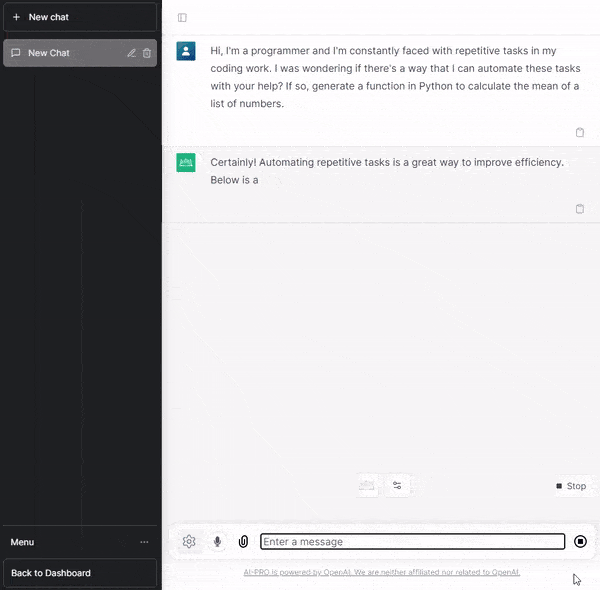
2. Generating Code Snippets or Boilerplate Code
A boilerplate code is used by programmers on projects without modifying the code all the time. Not only it saves you time, but it also ensures your project will have a consistent and reliable code. If you need a helping hand to create a good boilerplate code, ChatGPT can generate code snippets or boilerplate code that can be used as a starting point for a particular programming problem.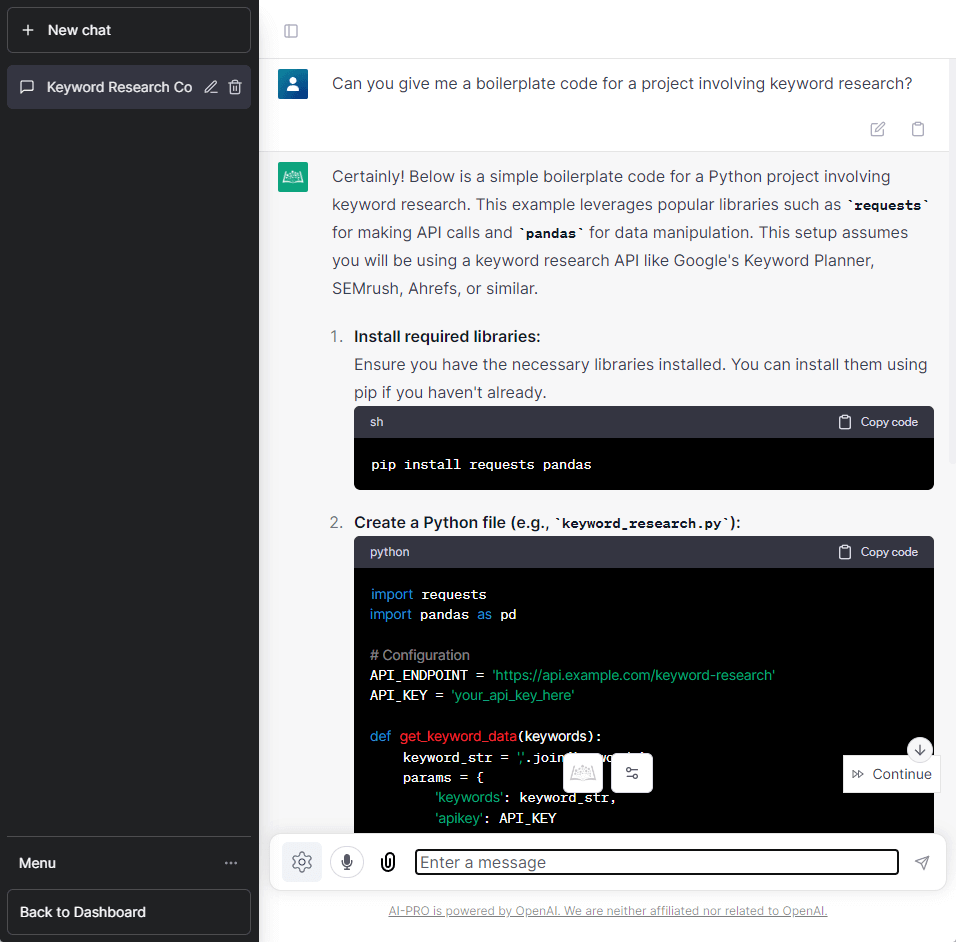
3. Providing Code Examples for Specific Programming Problems
When faced with a specific programming problem, ChatGPT can provide relevant code examples to help the programmer understand how to solve it. In this example prompt, the user asks how to implement a linked list in Python.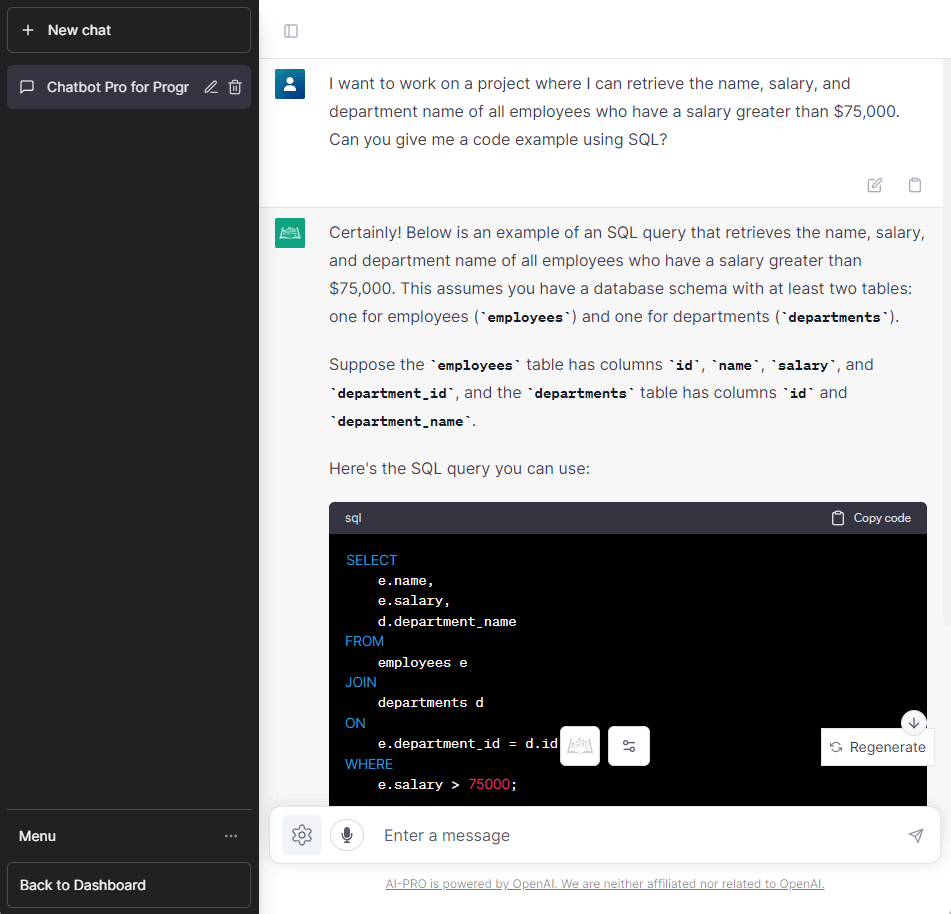
4. Answering Technical Questions and Programming
ChatGPT can help answer technical questions related to programming and software development.
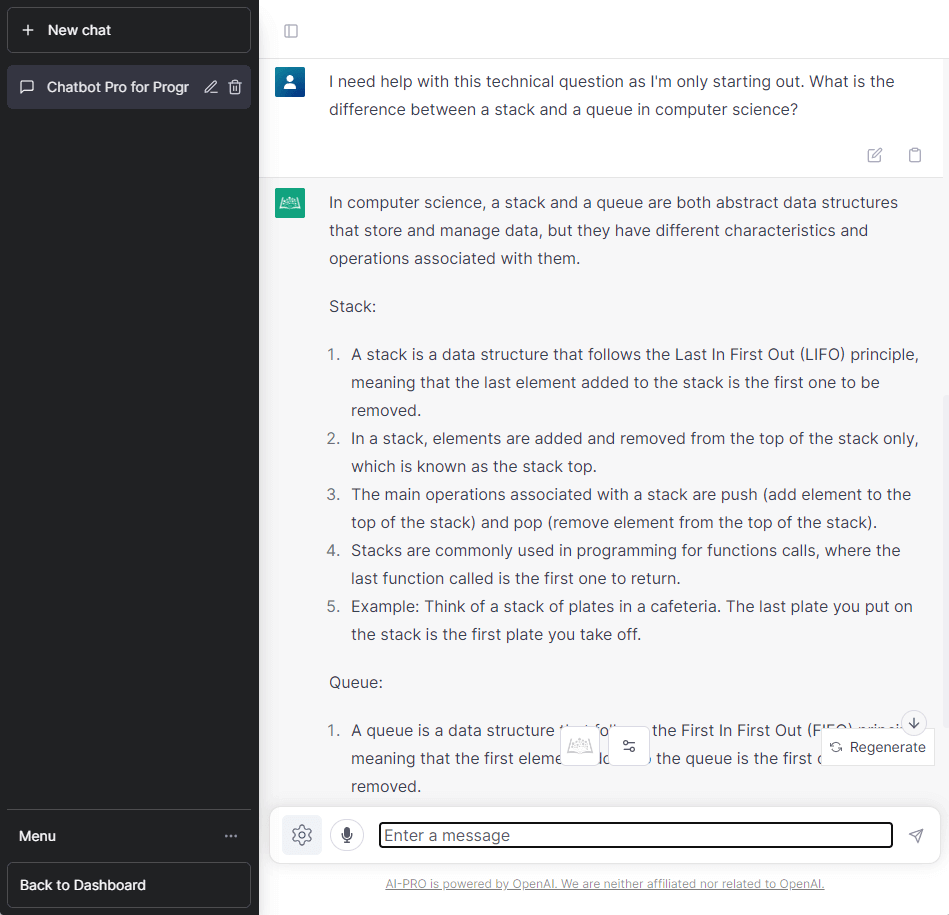
5. Generating Documentation for Code
Code documentation is a well-known term for programmers and engineers, as this improves your writing capabilities and become a better coder. However, this is a time-consuming process and not everyone has the luxury of time to document codes. ChatGPT can assist in generating detailed documentation for the function, including a description of its purpose, inputs, outputs, and examples of how it can be used.
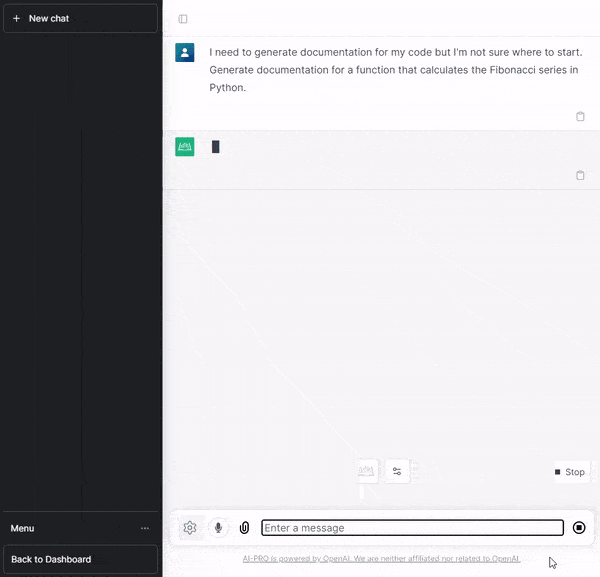
6. Debugging Code
When encountering bugs in their code, programmers can turn to ChatGPT for assistance in debugging. By providing a prompt like “Debug the following code that calculates the factorial of a number in C++,” ChatGPT can help the programmer identify and fix any issues in the code.
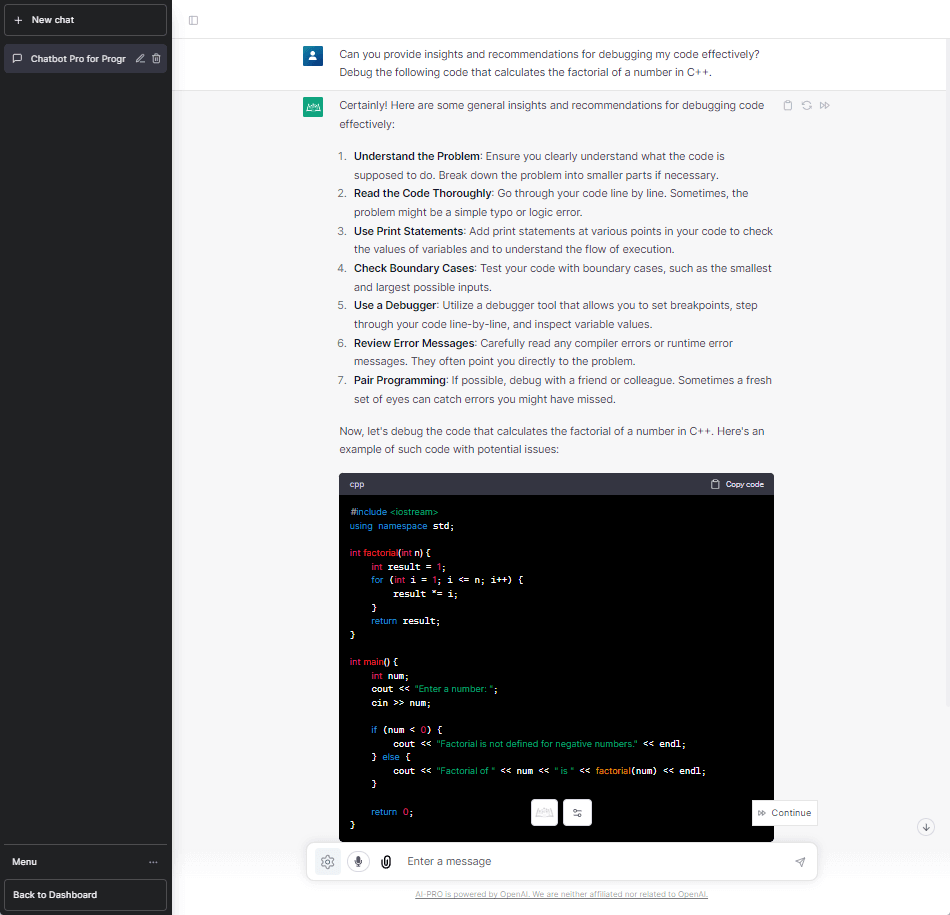
7. Generating Test Cases
ChatGPT can help generate test cases to validate the functionality of code. By providing a prompt like “Generate test cases for a function that calculates the mean of a list of numbers in Python,” ChatGPT can generate test cases that cover various edge cases and ensure that the function works correctly.
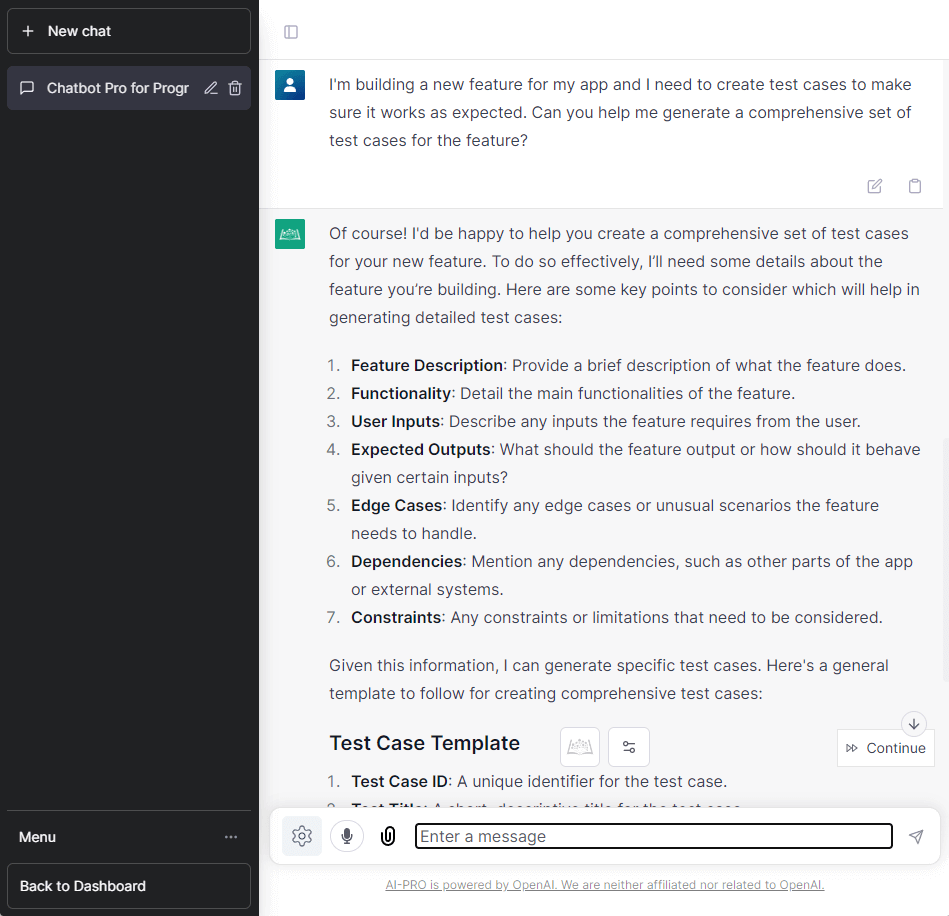
8. Generating Unit Tests
Test cases serve as a checklist for developers to validate their code and make sure that it works correctly in different scenarios. To generate test cases, developers need to understand the requirements and use cases of the code they are writing. ChatGPT can also assist in generating unit tests for individual components of a codebase.
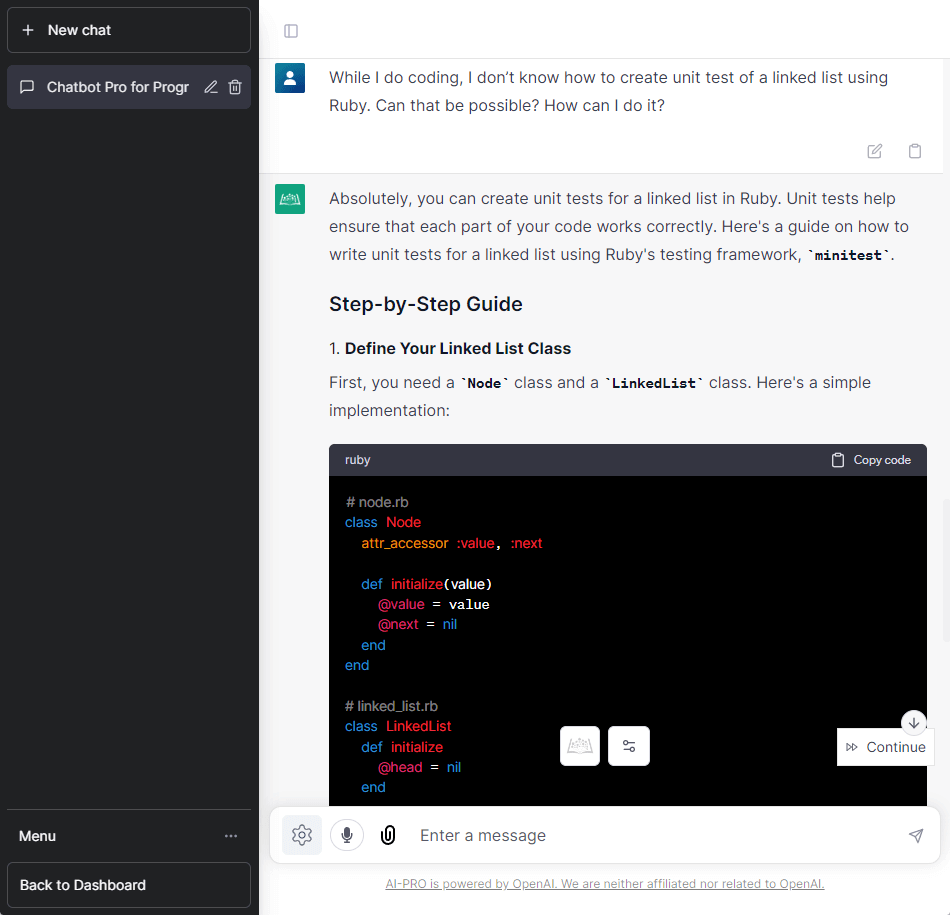
9. Generating Integration Tests
In addition to unit tests, ChatGPT can also help generate integration tests to validate the interactions between different components of a codebase. Integration tests are just as important as unit tests because it exposes any defects between the modules in the software project.
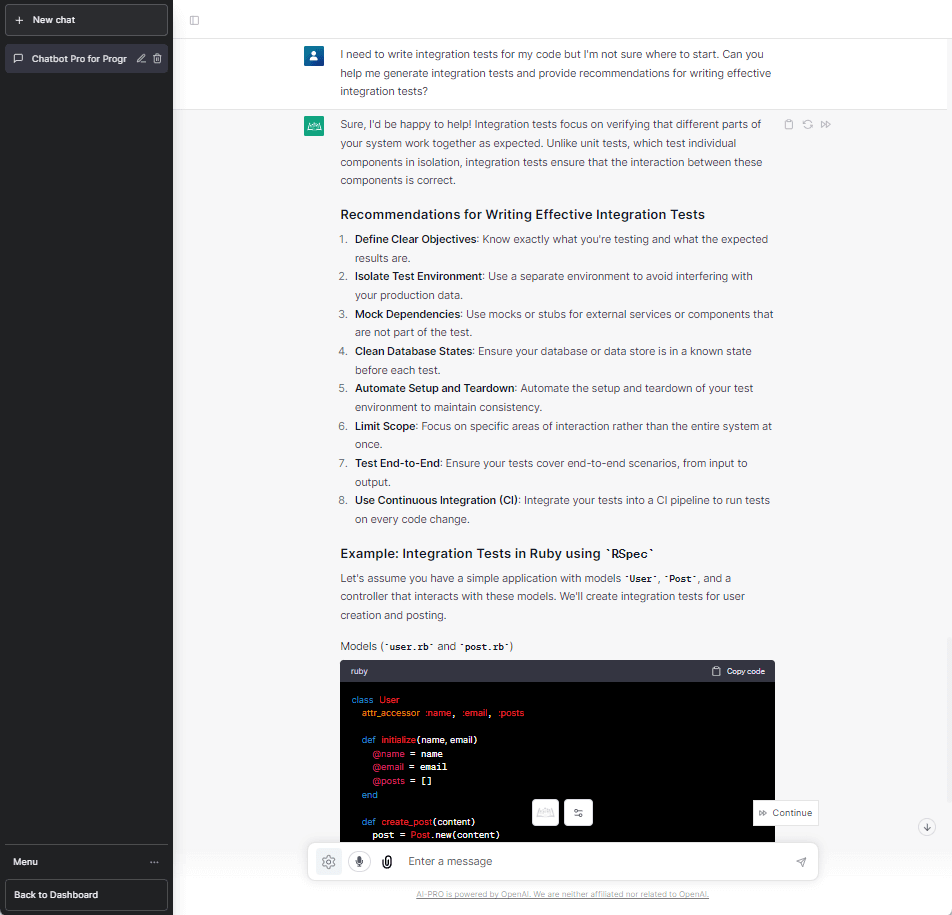
10. Providing Explanations for Complex Code Concepts
We always seek our search engines whenever we encounter complex code concepts. ChatGPT helps in understanding the code and also facilitates collaboration between developers by providing clear and concise explanations for these difficult concepts.
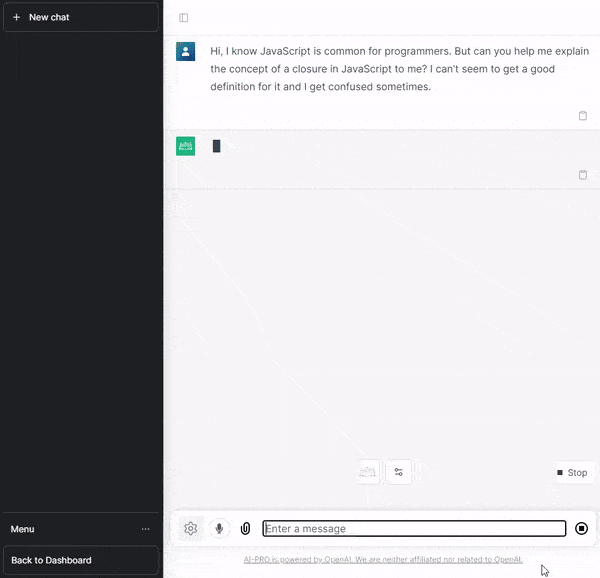
11. Generating tutorials
A tutorial is essential for any beginner, especially for a programmer who wants to learn more about coding. ChatGPT can generate tutorials by answering questions related to programming concepts, syntax, and code snippets that can be understood quickly.
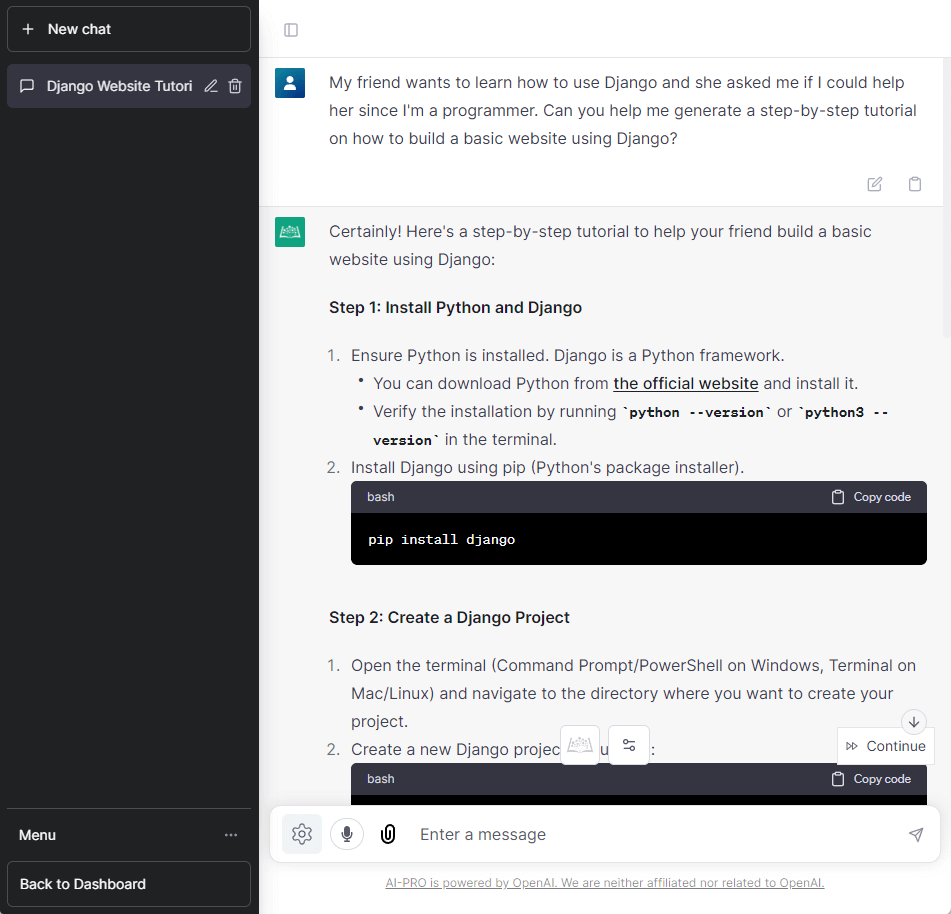
12. Providing programming recommendations
There are various programming tools a programmer can use, but sometimes it can get overwhelming. ChatGPT can narrow down programming recommendations by suggesting programming practices, libraries, tools, and technologies based on a programmer’s specific requirements.
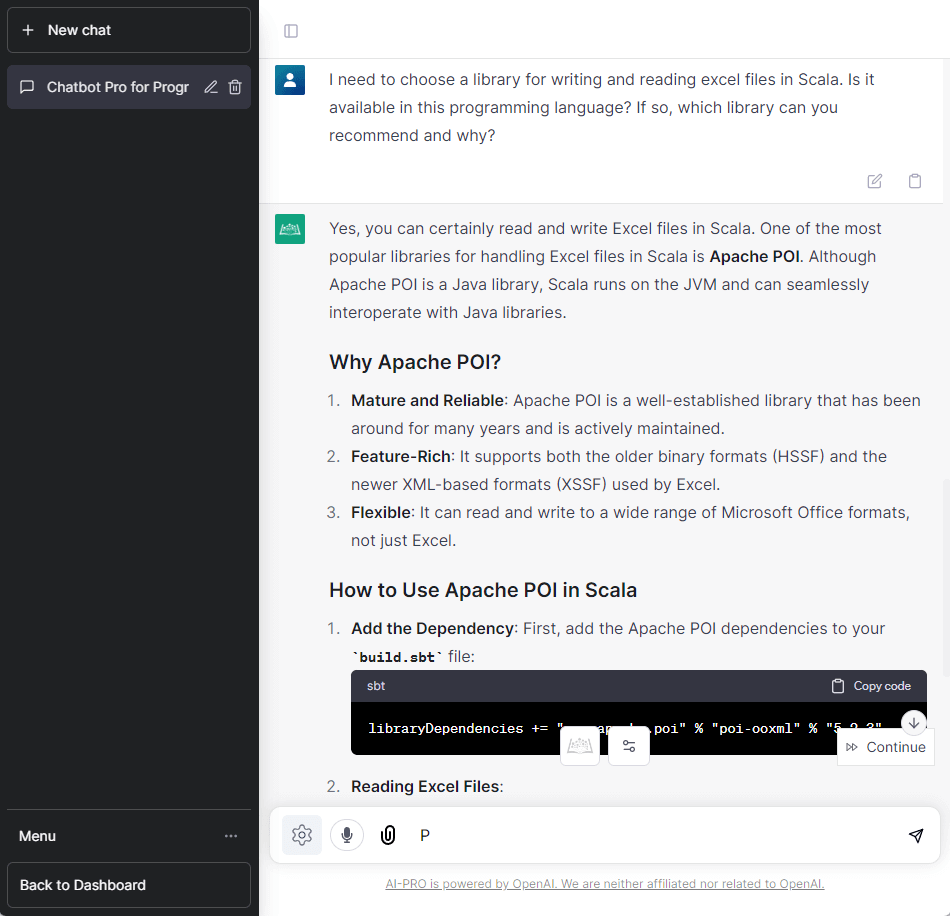
13. Providing insights on programming best practices
Another great way to use ChatGPT is to ask for insights on best practices for programming. This may include coding standards, design patterns, and testing strategies.
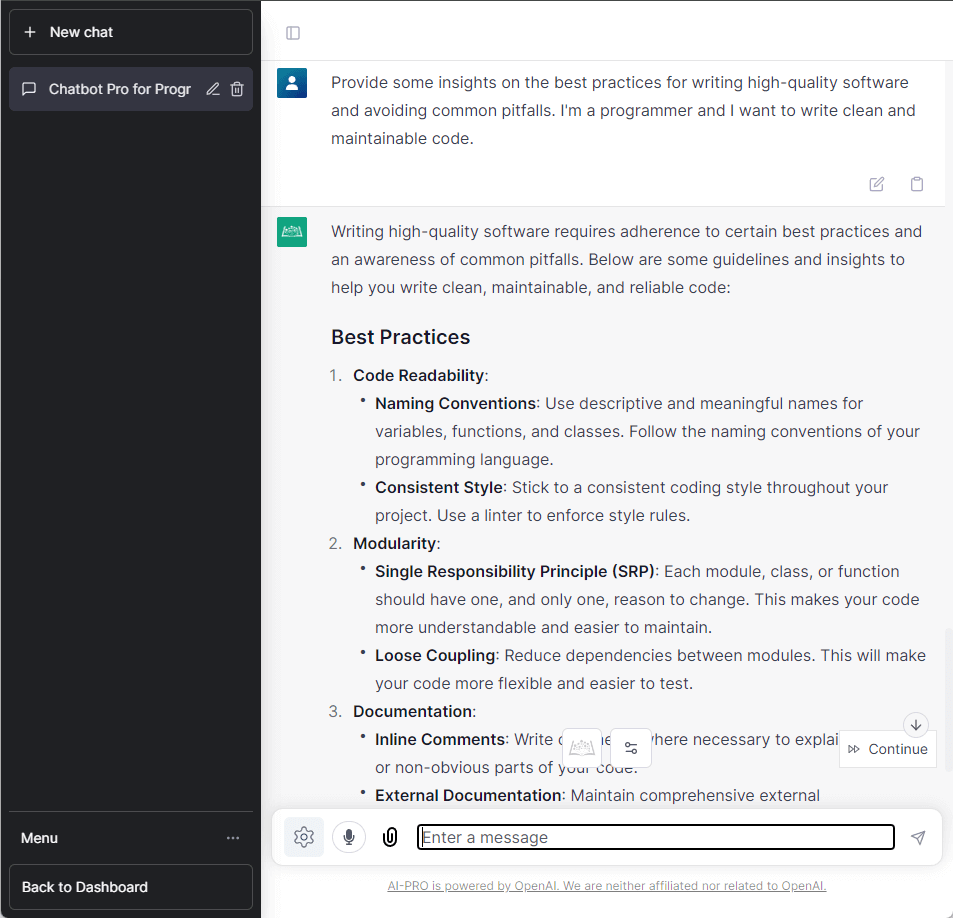
14. Answering software architecture questions
ChatGPT can answer questions about software architecture, including design patterns, trade-offs between different architectures, and the pros and cons of different approaches.
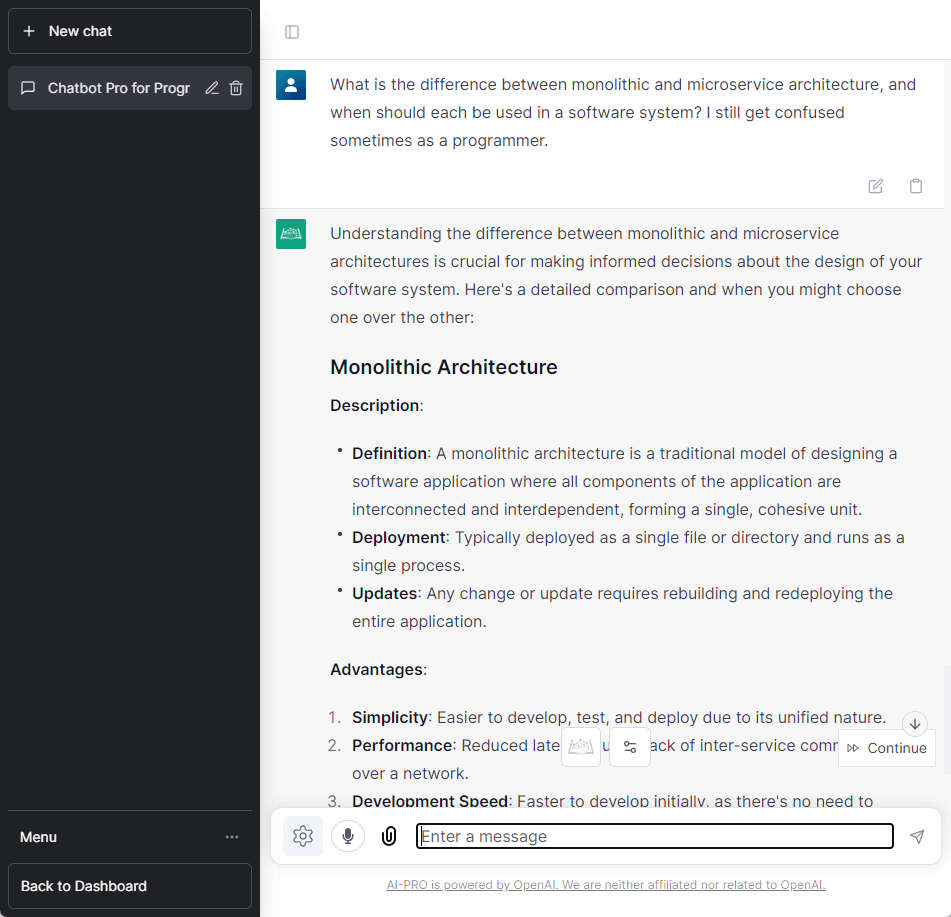
15. Suggesting architecture diagrams
Architecture diagrams are visual representations of the structure and components of a software system. ChatGPT can generate architecture diagrams based on the description provided by the user, helping programmers to visualize the structure and components of their software systems.
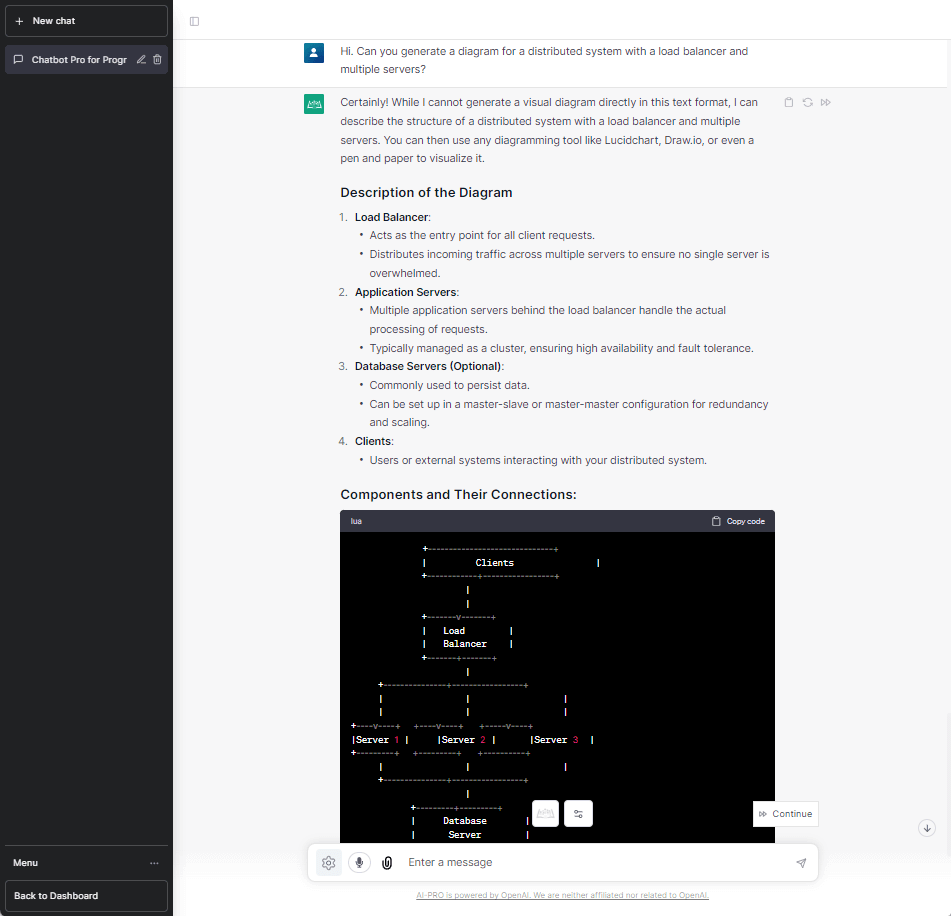
16. Generating design patterns
Design patterns are reusable solutions to common problems in software development. What ChatGPT can do is generate or suggest code snippets or examples for common design patterns used in software development, such as the Singleton pattern or the Factory pattern, helping programmers to write high-quality, maintainable code.
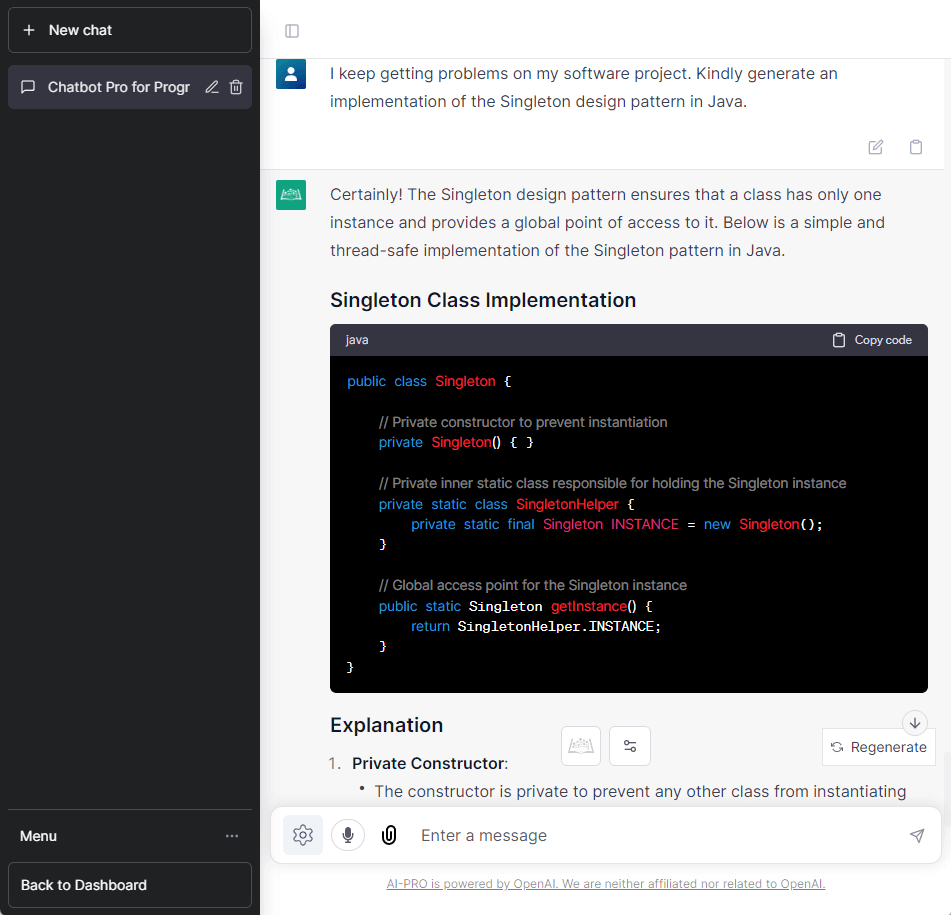
17. Providing suggestions for software design
Software design is a process where a programmer transforms the user requirements into a form suitable for software coding and implementation. If you are a beginner programmer, ChatGPT can provide recommendations for software design based on the requirements provided by the user, helping programmers to make informed decisions about the architecture and design of their software systems.
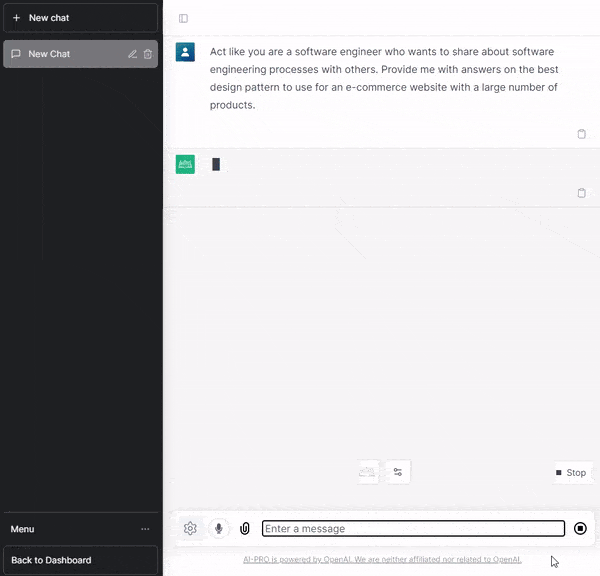
18. Answering questions about software development methodologies
There are various software development methodologies programmers and developers use to ensure their projects run successfully. Software development methodologies are frameworks and approaches for organizing and managing software development projects. ChatGPT can answer questions about Agile, Waterfall, and DevOps, helping programmers to understand the strengths and weaknesses of different approaches.
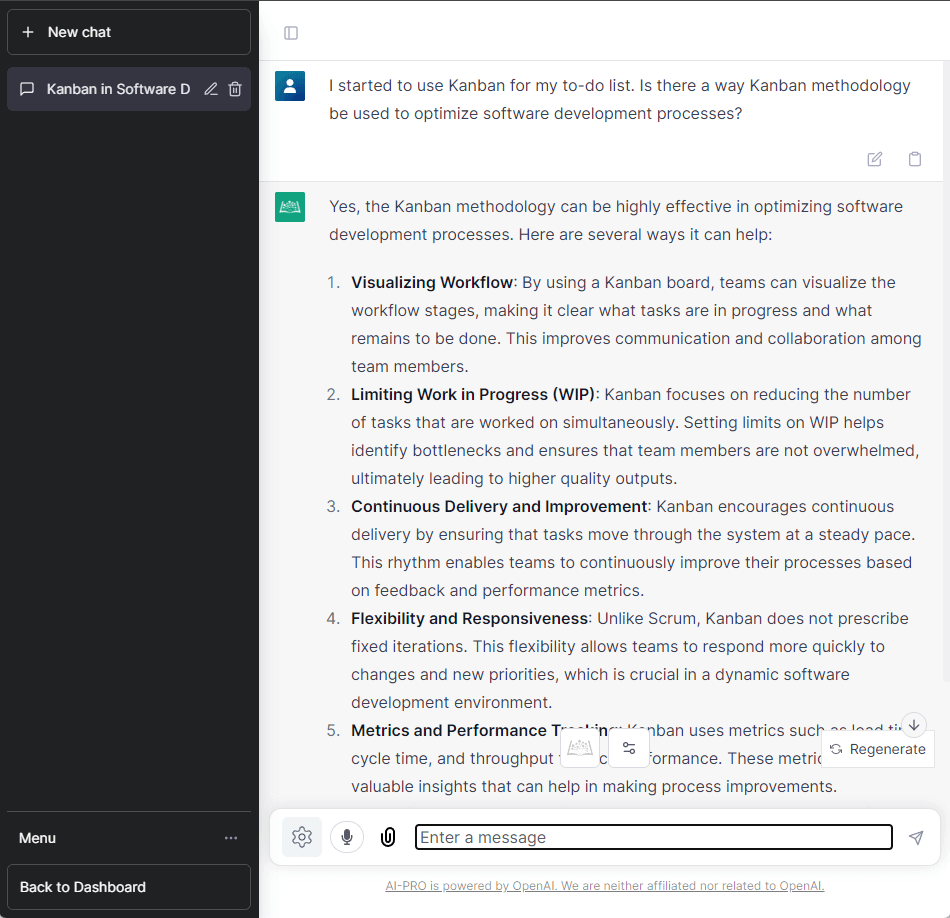
19. Generating agile project plans
Agile is a process of managing a project by breaking it down into several phases. This methodology requires flexibility, collaboration, and efficiency that would allow teams to deliver quality products. To make project planning faster, ChatGPT can generate project plans for Agile software development, including sprints, user stories, and acceptance criteria, helping programmers to organize and manage their software development projects.
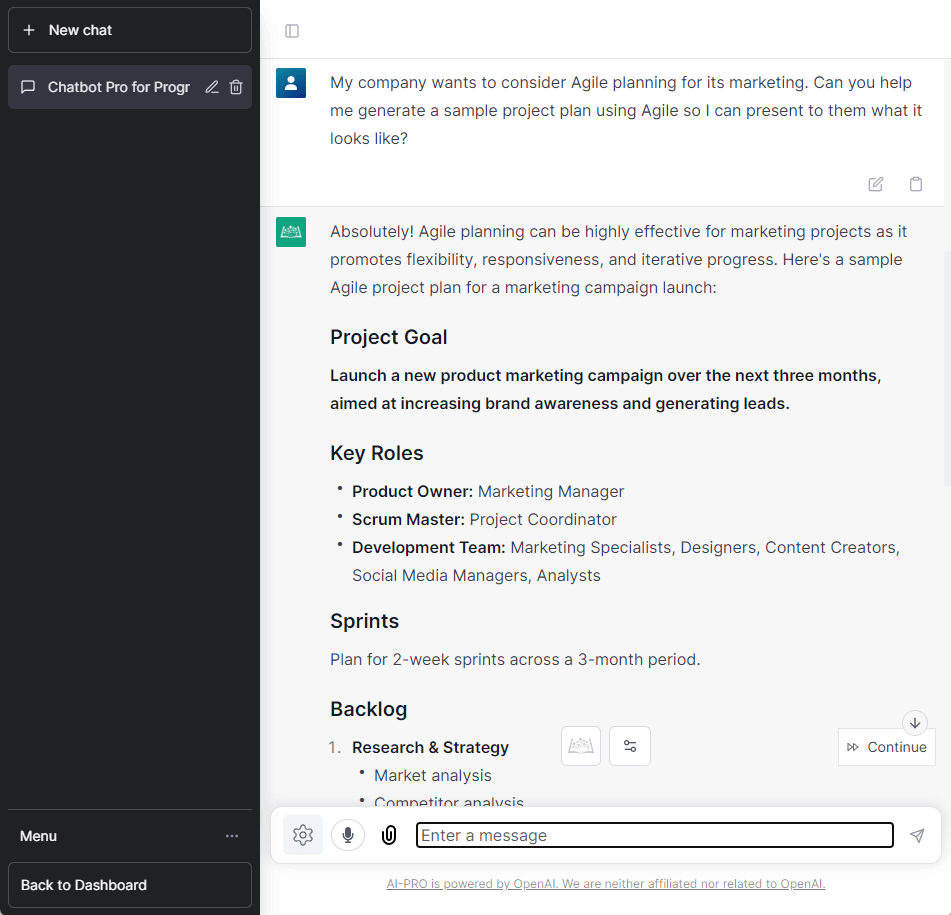
20. Providing project management insights
ChatGPT helps programmers by providing insights on project management best practices, including estimation techniques, risk management, and project reporting, helping programmers to successfully plan and manage their software development projects.
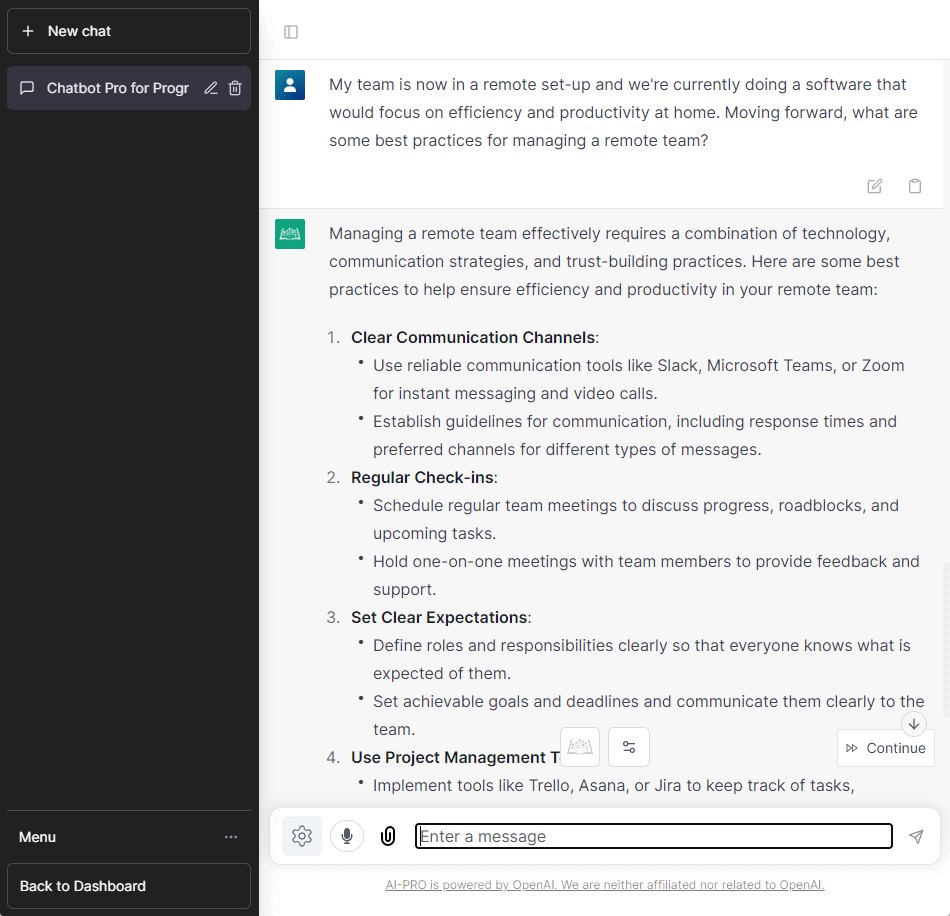
21. Generating software development roadmaps
ChatGPT can generate software development roadmaps based on the requirements and constraints provided by the user, helping them to plan and visualize the trajectory of their software development project.
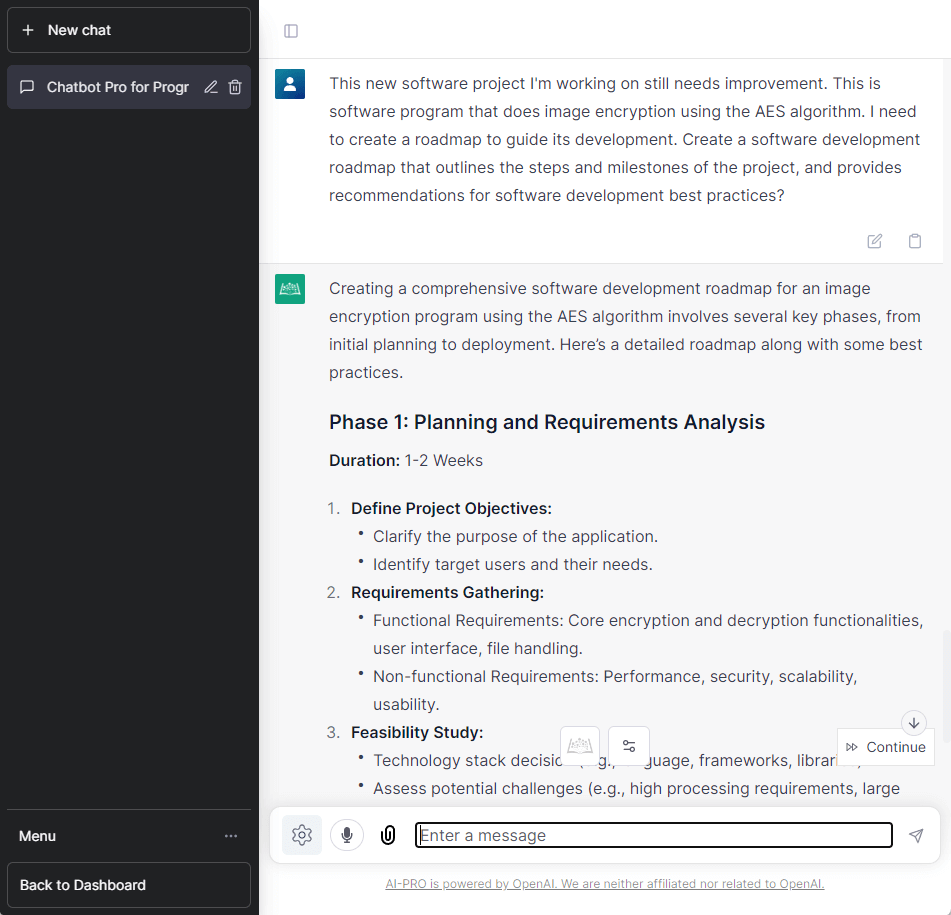
22. Generating software release plans
A software release plan involves planning, managing, and controlling a software development lifecycle while the software undergoes the developing, testing, deploying, and supporting stages. ChatGPT can generate the tasks and timeline for testing, deployment, and release, helping software teams to effectively plan and manage the release of their software applications.
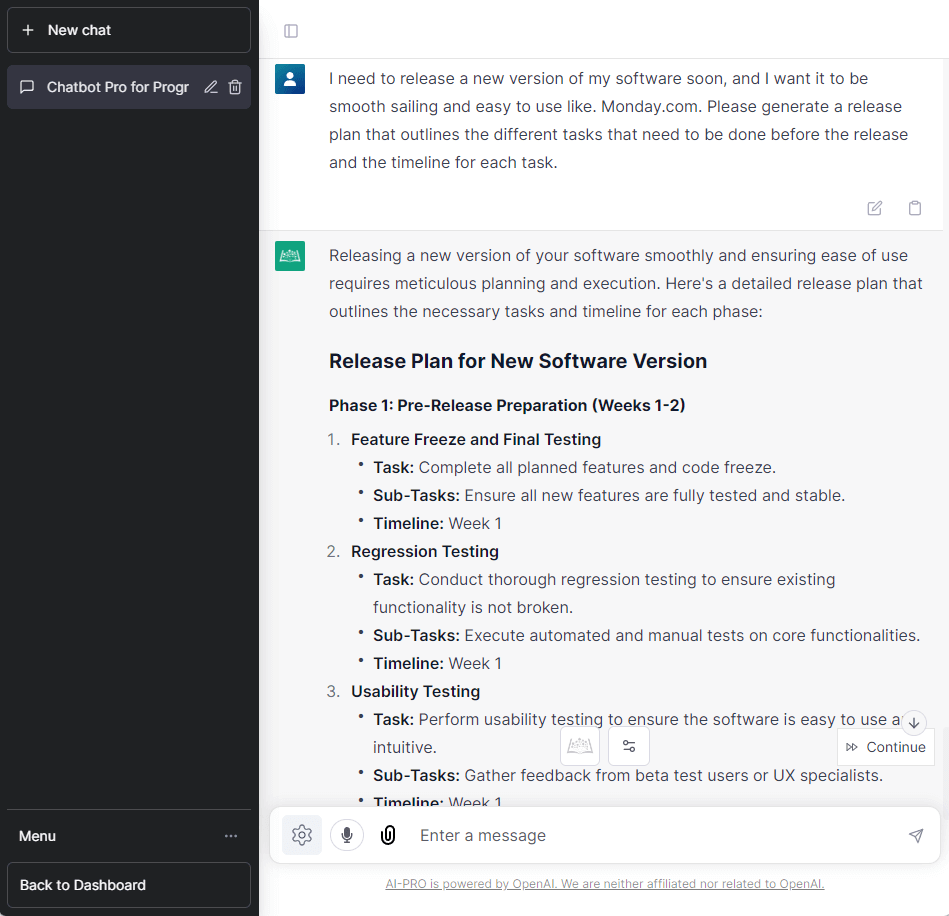
23. Answering questions about software engineering processes
A software engineer who’s starting may find it difficult to adjust in the first few days. Some of the processes a software engineer must know are the steps and procedures followed in software development, such as requirements gathering, design, implementation, testing, and deployment.
ChatGPT can answer your questions about these processes. It can answer questions on trade-offs between different approaches and the pros and cons of different methodologies, helping software engineers to make informed decisions about the processes they use in software development.
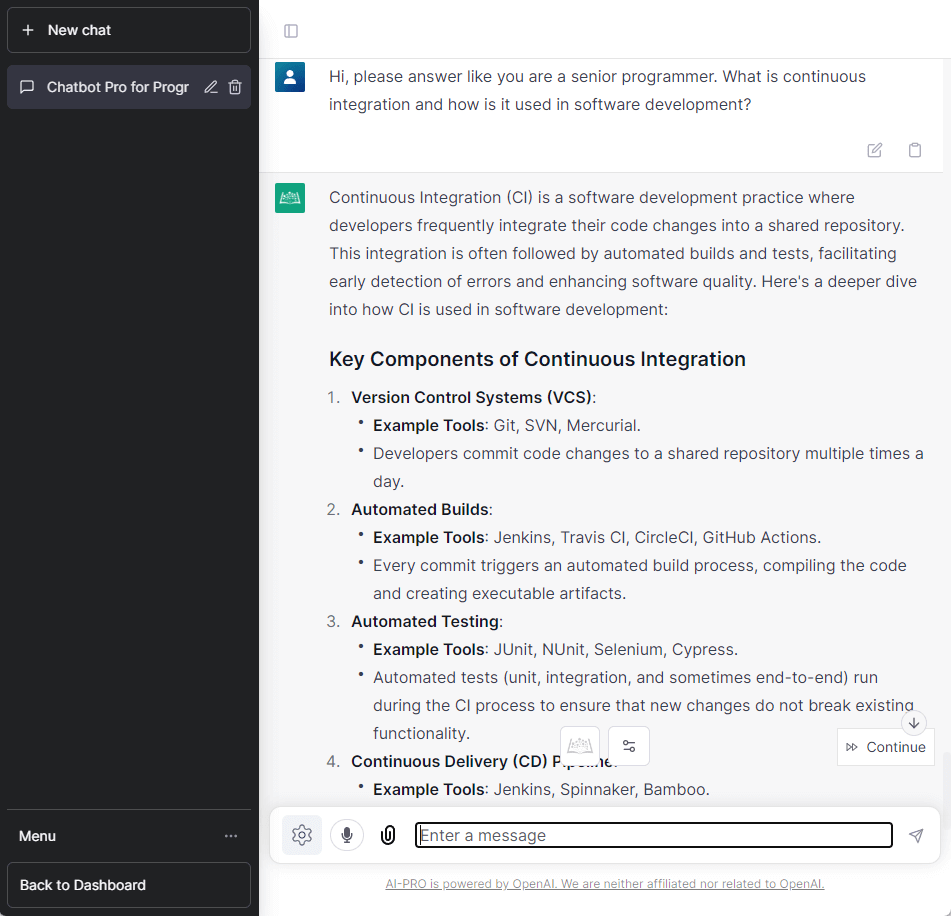
24. Generating Code Review Feedback
This refers to providing constructive criticism and suggestions for improvement of code that has been written by another developer. ChatGPT can generate code review feedback by analyzing code and providing recommendations for improvements in terms of code quality, maintainability, performance, and security. The feedback generated by ChatGPT can help developers to identify potential issues in their code, improve their coding skills, and write code that is more maintainable, efficient, and secure.
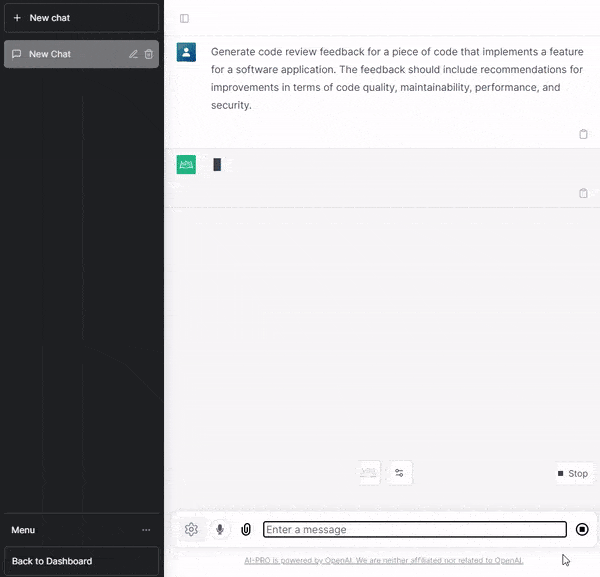
25. Providing software engineering recommendations
Software engineering recommendations are suggestions for tools, technologies, processes, or approaches that are appropriate for a specific software development project. ChatGPT can provide software engineering recommendations based on the requirements and constraints provided by the user, helping software engineers to make informed decisions about the tools, technologies, and processes they use in software development.
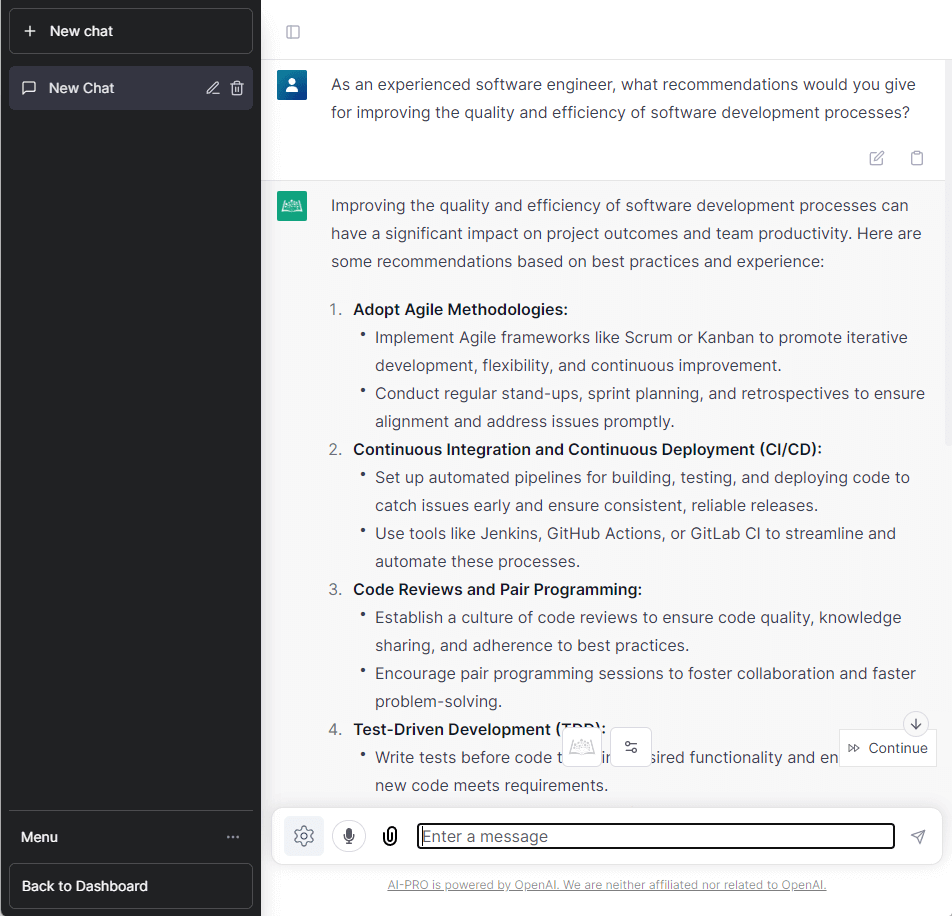
A Few Words
The 25 ways to use ChatGPT for programmers demonstrate its versatility and ability to enhance the software development process. From project management to technical documentation, ChatGPT can save programmers time and effort while providing valuable insights and solutions. Whether you’re a beginner or an experienced software engineer, ChatGPT can help improve the quality and efficiency of your work. So, it’s worth exploring the various ways in which ChatGPT can be utilized to streamline the software development process and bring new innovations to the field.
If you’re interested in trying out other large language models (LLMs), we have also integrated Gemini, LLaMA, Mixtral, Vicuna, and Qwen in Chatbot Pro. Maximize the power of artificial intelligence with AI-PRO today!


